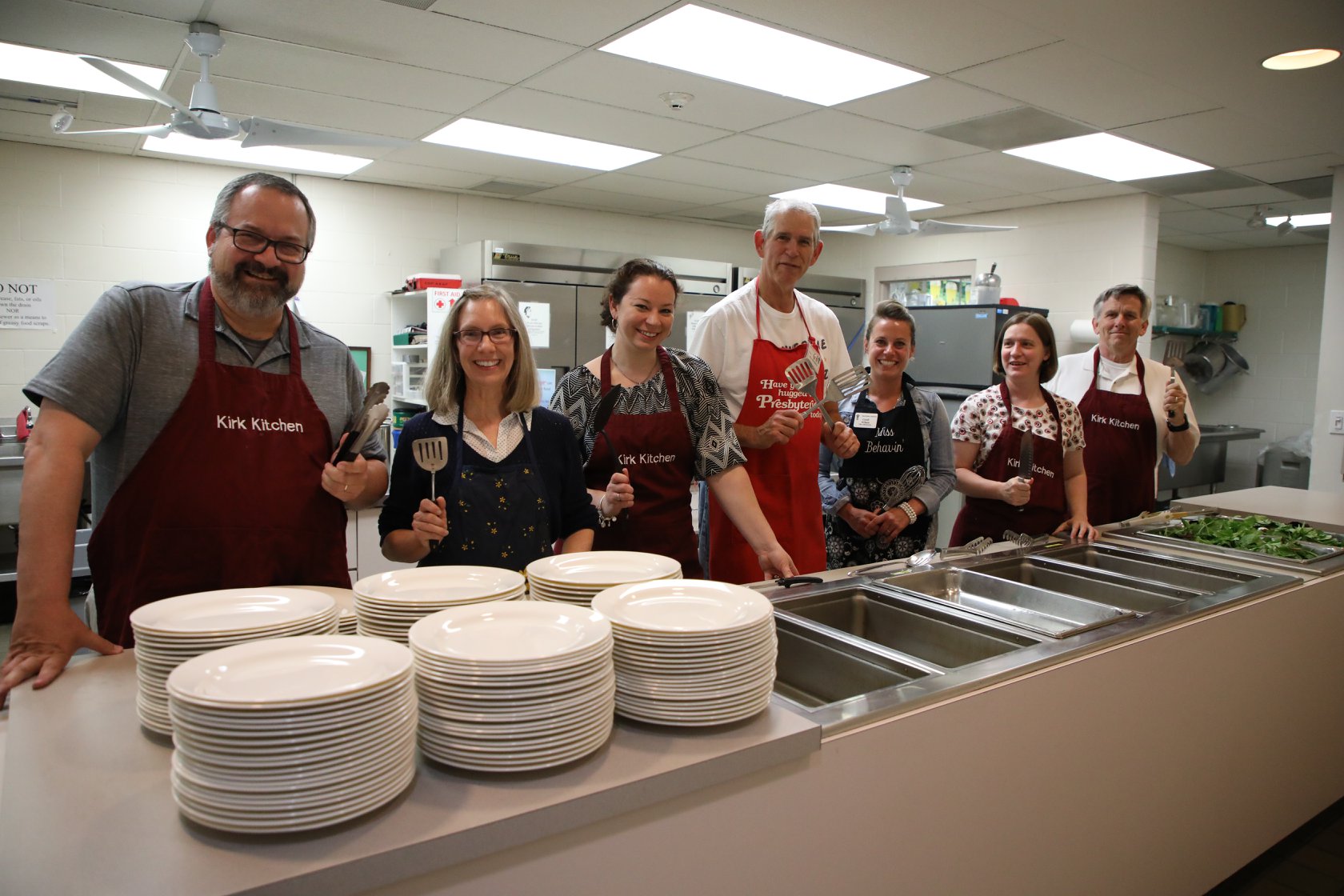Congregational Corner: Lessons learned about congregational ministry

By Rev. Jordan B. Davis (M.Div.‘14)
Congregational Corner
Well, I have completed and survived my very first programmatic year in youth ministry!
One year ago, I was sharing the news that I would be leaving my position as church relations officer at Union Presbyterian Seminary and joining the ministry at Kirk of Kildaire Presbyterian Church as the transitional associate pastor for youth and young adults. I was both excited and terrified. This was the exact position that I had dreamed about, but I was deeply entrenched in a very different type of ministry at the time. I was pretty sure I knew what to expect but also realized that we can never know what to expect in ministry.
Well, one year later and I can say that the jump was well worth the wait and every bead of sweat that has dropped since then. I have learned so much and look forward to continuing to learn about congregational ministry at a deeply personal level. I wouldn’t trade the first three years of my ministry for anything, and the same goes for this transition to congregational ministry. Even in the setting of another very unpredictable setting.
As I think back on the last year, here are the big things that I have learned and offer to anyone who is heading into congregational ministry:
1) The team is everything. Whether you are on a staff of two or 10, the team is what makes everything work or fail. No ministry is successful when you work on your own so it is imperative that you not just get to know your teammates, but learn to work with them. If they have been there even one day longer, there is wisdom about the congregation which can be shared. If they specialize in another field, they will be able to help you when it comes time to reach out (which will happen, whether you want it to or not). When you have a hard day and just want to shut the door and cry, they will be the ones to come and check on you. If you don’t put the team first, you will end up out in the middle of a chaotic field and have no clue which way to run or who to ask to run with you. I could not have served in this ministry if it weren’t for my team and I will never forget that.
2) No matter how you spin it and no matter how much hope you have, getting volunteers is hard. I don’t know of any pastor who knows exactly how to get all of the volunteers for everything they need. Even when I think that I am set for success, something will inevitably happen and I begin making those phone calls and sending those emails to everyone I know, “Will you PLEASE chaperone/ drive/ cook/ teach?” My hope and prayer is that when I know my congregation better, I can make more appropriate appeals other than “From your directory picture, you appear to be young, cool, and single with no children – do you have plans next weekend? We need a chaperone. By the way, I am the new pastor.” I have recently sent out (in every form) a volunteer form for next year and am trying to not stress over the numbers I have so far. I don’t warn you so that you lose hope, but so that you know it isn’t about you when no one signs up to volunteer. It happens to every pastor (and teacher) I know.
3) Family is priority. Family is priority for our congregation and should be for us. There are too many demands on our time today and I have learned to celebrate when I see my congregation taking time with their family, even if it means missing youth group. I have also learned to show that my family is a priority and to set that example for those who look to me as a leader. When we make our people feel guilty for spending time with their family, we lose them. When we make it possible to continue spending time with family, we open new doors. Family involvement is also one of the ways we will be able to find volunteers… maybe (see #3).
4) Preaching is so much easier when you know your people. I loved preaching at a different congregation each week. It was an incredible gift to worship with and get to know so many different congregations, however it was incredibly difficult personally and professionally. I struggled when I didn’t know who I would worship with each week and it made it very difficult to know what to say as I wrote each sermon. I have over 100 sermons that scratched at the surface, but I now have five sermons that dig a bit deeper and touch on congregational concerns that I don’t just know about, I am living with them. I feel that I am able to better share God’s Word when I know who I am sharing it with as opposed to sharing it in a way that simply gets the job done.
5) Every pastor should take time to visit congregations which are different from their own. I cannot say this enough – take a continuing education Sunday to worship somewhere else. Or a vacation day. Or a sick day. Just do it. With the incredible governmental model in the Presbyterian Church (USA), it is even more incredible how different each congregation is. Orders of worship, prayers of thanksgiving, pastoral prayers, hymns… it is all different. I will never forget preparing to serve communion and asking a member of the congregation where I was visiting, “Is there anything I should know? Is there any special way that this should be done?” They laughed and responded, “We just do it!” I groaned, knowing that I was walking onto a landmine, and “just did it.” Sure enough, that individual came up following worship service very exasperated, “What was that? That is NOT how we do communion!” (I still don’t know what I did wrong) Worship in as many settings as you can and experience church as a visitor. Not only do you need it for your own faith development, but it will open your eyes to the things you have grown numb to in your own ministry while showing you new things to try!
6) No matter what you do, serve God with your whole heart, and if you can’t serve with your whole heart then consider what changes need to be made. Some days, we just can’t muster it. Some days, we are too tired and annoyed to approach our ministry with an open heart. Take those days to stop and regroup, spending one-on-one time with God and remembering why you are here in the first place. If we can’t remember and embrace that call, we cannot fully serve God.
I could go on for hours about what I have learned, but I hope that as so many begin their first calls that these hard lessons learned will help you to remember you are not alone. Ministry is an incredible and difficult call and it can seem so lonely at times. On those days, remember that you have so many praying for you and encouraging you, even if you don’t know who they are. You WILL survive this year and be able to share your own lessons learned before you know it!
Alumna Jordan B. Davis is associate pastor for youth and young adults at Kirk of Kildaire Presbyterian Church in Cary, North Carolina, and editor of Congregational Corner.


